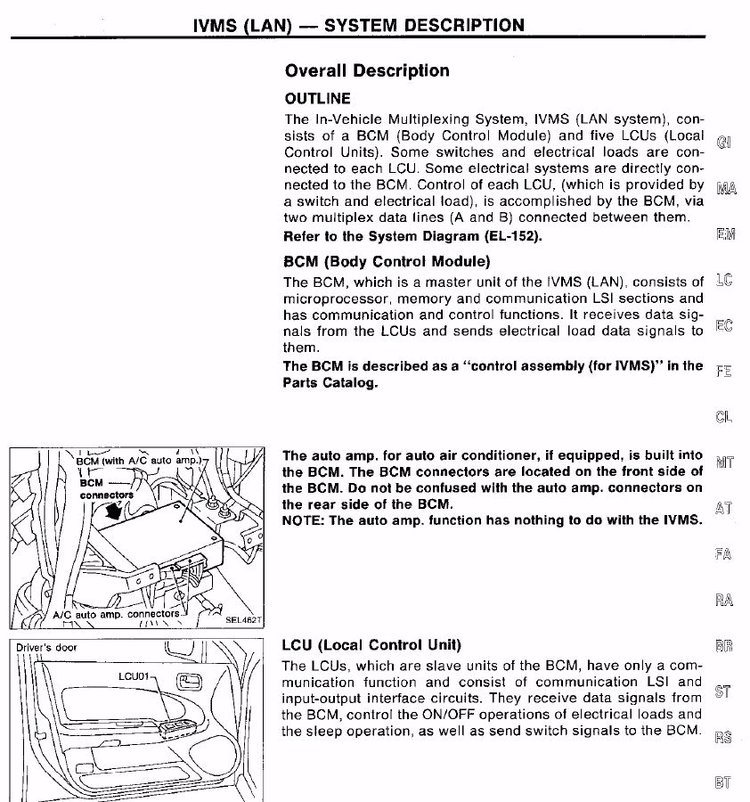I need some help dealing with what should be a simple electrical issue in my beloved 1996 Infiniti I30:
I think my problems all started over a year ago when I tried installing LED interior lights that a (reputable) guy on Maxima.org was selling. It had been 5+ years since I bought the LEDs, and none of them worked, and when I went to reinstall the stock bulbs, I had trouble getting them to work again. Since that time, the door light on my DS door hasn't worked, no matter how many new bulbs I try. Same thing with one of my front map lights. The main interior light has been weak and intermittent since I tried an LED in its place too.
Well today I decided I would dig into the problem and see if I could fix it. I popped off the cover for my dead DS door light and checked for continuity with my multimeter, and it had continuity. However when I checked to see if it had power, I got something like 0.03V. I had my MM set to DC10A. Pushing and releasing the door plunger didn't change the reading. I then went over to my working PS door light. I pressed the plunger down and removed the bulb. The socket had continuity, but when I released the plunger, it didn't have any power going to it. I then pressed the plunger back down and plugged the bulb back in. It no longer works, and it's not burnt out! I then went to check the front map lights. The one on the DS hasn't worked in a while, but the PS one has. I checked for continuity with the PS bulb lit up. The DS had continuity, but when I checked the lit up PS bulb, it went out and won't come back on! The PS has continuity as well. It's almost like I'm blowing out fuses for the individual lights, but I know those don't exist. I went around and checked all my fuses with my MM and all have continuity. How in the world are the lights dying just by me removing them or touching them with my MM? Why are they not getting power?
Also, I re-tried the procedure to have the body module check for error codes associated with the door locks, since my door locks have a mind of their own, and I often have to unlock the car (with my alarm fob) five times before all the doors unlock. When I did this test a year ago, it said the PS front door lock actuator was bad. Today, with most of the interior lights burnt out, I was unable to get the car into diagnostic mode. I wonder if the diagnostic mode can only be accessed if all/most of the interior lights are working? IIRC it uses the interior lights to tell you what the code is by blinking.
My electrical troubleshooting skills are pretty weak, but I'm trying to learn. Does anyone have any ideas as to what I've done to my poor car? Thanks in advance!!!







































